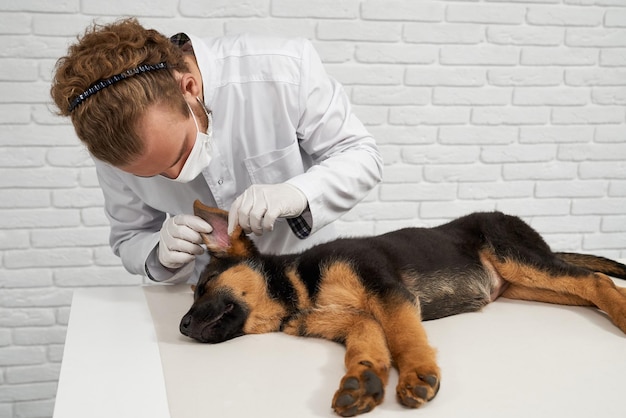Parasite Prevention for Horses, Dogs, and Cats: Year-Round Protection


Parasite Prevention for Horses, Dogs, and Cats: Year-Round Protection
Keeping your pets safe from parasites is a year-round responsibility that plays a major role in their long-term health and comfort. Whether you share your life with energetic dogs, curious cats, or majestic horses, the threat of fleas, ticks, and intestinal worms never truly goes away—especially in Kentucky’s climate, which provides the perfect environment for these pests to thrive throughout every season. At Green Tree Animal Hospital, located at 4371 Old Harrodsburg Road, Suite 140, Lexington, KY 40513, our team of veterinarians is dedicated to helping pet owners in Lexington and surrounding communities protect their beloved animals from the discomfort and dangers posed by parasites.
In this guide, we’ll explore why parasite prevention for pets is so important, how parasites can impact horses, dogs, and cats, and what steps you can take to ensure your four-legged family members stay protected all year long. We’ll also discuss the benefits of consistent flea and tick control, as well as heartworm prevention options, to help you make informed decisions about your pet’s health. If you’re looking for reliable, comprehensive veterinary services in Lexington, or searching for a "vet near me" who understands the needs of your pets, you’re in the right place. For those considering a proactive approach, veterinary wellness plans for pets can make routine prevention straightforward and affordable.
Recognizing the Signs: When Parasite Problems Affect Your Pet
Parasite problems in pets can develop gradually or appear suddenly, depending on the type and number of parasites involved. Recognizing early warning signs is crucial for prompt intervention and minimizing discomfort or health risks. In dogs and cats, common symptoms of flea infestations include persistent scratching, biting at the skin, visible fleas or flea dirt (which resembles black pepper), and areas of hair loss or redness. Ticks are sometimes visible as small lumps attached to the skin, and their bites may lead to swelling, irritation, or even more serious tick-borne illnesses if left untreated.
Horses may display signs of external parasites such as tail rubbing, excessive rolling, and skin irritation. Internal parasites can manifest as weight loss, dull coat, changes in appetite, diarrhea, or a generally unthrifty appearance. For all species, other symptoms to watch for are coughing, lethargy, or changes in stool that may indicate intestinal worms or, in the case of dogs, heartworm disease.
Because some parasites can also transmit diseases to humans, noticing issues in your pet early on is important for the health of your entire household. If you see these signs or any sudden changes in your pet’s behavior or appearance, schedule an appointment with your veterinarian promptly. Timely intervention can make a significant difference in your pet’s recovery and comfort.
Parasite Threats in Kentucky: Why Year-Round Prevention Matters
Kentucky’s moderate winters and humid summers mean that parasites are rarely dormant for long. Fleas can survive indoors throughout colder months, and ticks become active on mild winter days as well as during spring and summer. Mosquitoes, which transmit heartworm disease, thrive from late spring into early fall, but indoor pets remain at risk whenever mosquitoes find their way inside.
The causes behind parasite infestations are often linked to environmental exposure, contact with wildlife, and the presence of untreated animals in the area. Dogs and cats may pick up fleas or ticks during walks, time at the park, or even in their own backyard. Horses are susceptible to a variety of internal and external parasites, especially if they graze in communal pastures or have infrequent deworming schedules.
The reality is, parasite threats do not take a break based on the calendar. Pet owners searching for “flea and tick control in Lexington” or “pet parasite prevention near me” should know that year-round vigilance is the only way to reliably prevent infestations and the health problems they cause.
Professional Treatment and Prevention: What to Expect from Your Veterinarian
When you visit Green Tree Animal Hospital for parasite prevention for pets, our veterinary professionals will begin with a comprehensive exam tailored to your animal’s lifestyle and specific risks. For dogs and cats, this includes a review of past infestations, current symptoms, and any unique environmental factors—like whether your pet spends time in wooded areas or interacts with other animals. For horses, we’ll assess grazing habits, herd exposure, and farm management practices.
Treatment approaches involve a combination of prescription preventives, topical or oral medications, and—for horses—customized deworming protocols based on fecal egg counts. Flea and tick control for pets in Lexington often includes monthly preventives that address both pests, while heartworm prevention for dogs is essential in this region. If your pet is overdue for a checkup, we recommend scheduling a wellness examination to ensure that all preventive care is up to date and tailored to your animal’s current needs.
Our veterinarians may also recommend heartworm testing services for dogs and, in certain cases, cats, especially if there has been a lapse in monthly prevention. For horses, routine fecal testing helps determine the most effective deworming schedule, which can prevent resistance and protect pasture health. We carry a range of safe and effective parasite preventives for every species, and our online pet medications service makes it easy to access the best options for your pet right from home.
Home Prevention Strategies: Keeping Parasites at Bay
While professional veterinary guidance is the foundation of effective parasite prevention for pets, there are important steps you can take at home to minimize risk. Maintaining a clean living environment is crucial—wash pet bedding regularly, vacuum carpets and upholstery, and keep yards free from tall grass and debris where ticks may hide. For horse owners, frequent manure removal and regular pasture rotation are key strategies to reduce internal parasite exposure.
Year-round use of veterinarian-recommended preventives is the most reliable way to guard against fleas, ticks, and worms. Other steps include checking your pets for ticks after outdoor activities, monitoring for signs of scratching or skin irritation, and keeping up with routine veterinary visits for ongoing assessment. If you are unsure about which products or strategies are best for flea and tick control near Lexington, our team is always available to offer guidance specific to your pet’s needs.
When to Seek Veterinary Care for Suspected Parasite Issues
It’s important to recognize when a problem requires professional attention. Any time you notice live fleas, ticks, or worms, or if your pet shows persistent scratching, uncharacteristic lethargy, swelling, or unexplained weight loss, it’s wise to contact your veterinarian promptly. In horses, sudden changes in appetite or unexplained colic may indicate severe internal parasite burdens that need urgent evaluation.
Certain conditions, such as heartworm disease in dogs and cats, can have serious consequences if not detected and treated early. Regular heartworm testing services and year-round prevention are essential in the Lexington area given the presence of mosquitoes. If you are searching for “veterinary services near me” or “best veterinarian near me” for prompt parasite diagnosis and management, Green Tree Animal Hospital provides comprehensive support and advanced diagnostic tools.
Delays in treatment can increase the risk of complications and even make parasite control more challenging in the future. Always reach out to our veterinary team if you have concerns about your pet’s health or are unsure about the presence of parasites.
Take the Next Step: Protect Your Pet Today
Safeguarding your pets from parasites is one of the most important steps you can take to ensure a long, happy, and healthy life together. Consistent, year-round parasite prevention for pets not only protects your animals from discomfort but also helps prevent the spread of diseases that can affect the entire family. At Green Tree Animal Hospital, we are committed to providing expert guidance and compassionate care for every member of your animal family, whether you have a dog, cat, or horse.
If you’re ready to start a flea and tick control plan, update your pet’s deworming schedule, or simply want to discuss the best prevention strategies for your needs, we invite you to schedule an appointment with our veterinary team today. We proudly serve Lexington and surrounding communities, making it easy to find a "vet near me" that truly cares. To get started, call us at (859) 223-2221 or visit us at 4371 Old Harrodsburg Road, Suite 140, Lexington, KY 40513. Our team can help you develop a tailored prevention plan and answer any questions you may have about veterinary wellness plans for pets or online pet medications.
Remember, when it comes to parasite prevention for pets in Lexington, proactive care is always the best approach. We look forward to being your trusted partner in every season and providing the highest quality veterinary services near you.
For more information about parasite risks in Kentucky, visit the American Heartworm Society or CDC Parasites Information. Always consult your veterinarian for specific advice related to your pet’s health and treatment needs.






_corporate_logo-1920w.webp)
















